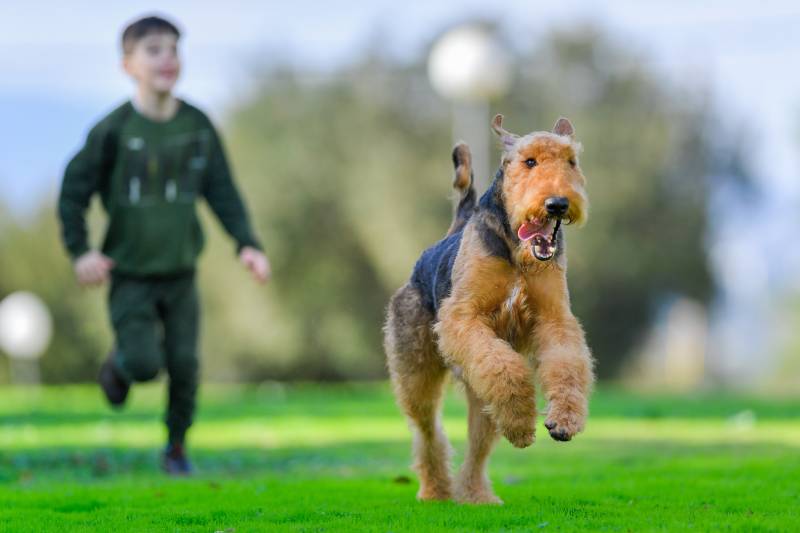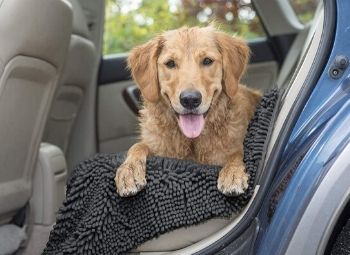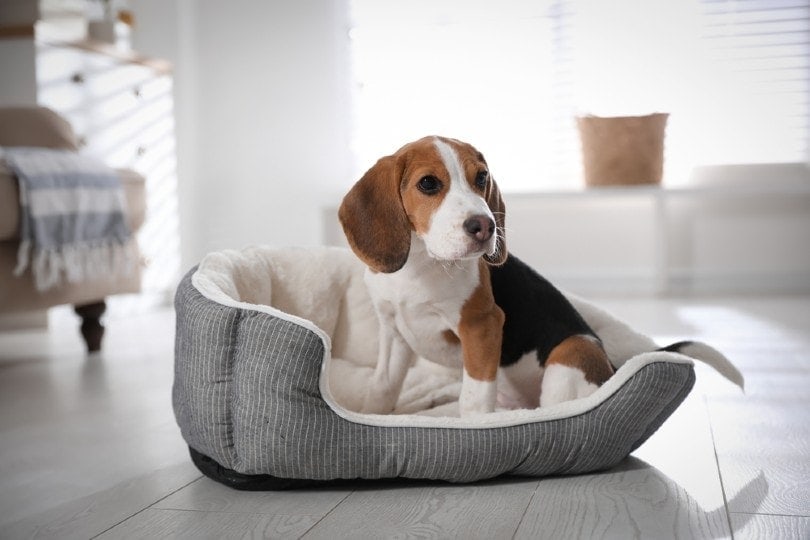My Dog Ate Rabbit Poop: Here’s What to Do (Vet-Reviewed Guide)
Updated on
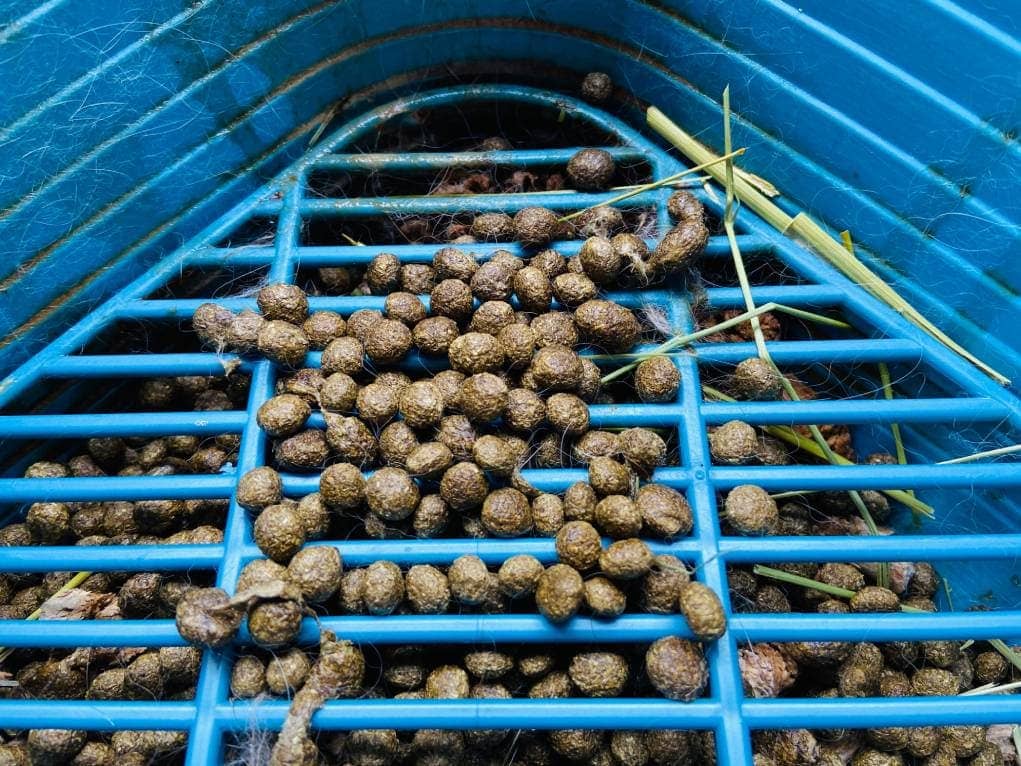
As a pet parent, you know that your dog explores the world with their nose and mouth. However, what you might not have expected is that you would catch your dog eating rabbit poop while walking through the woods. Now, you’re concerned that it will harm your dog or make them ill.
In the majority of cases, there will be no need for concern, especially if they’ve only snacked on a small amount. Dogs that have eaten a lot of rabbit poop may find themselves with a stomach ache and diarrhea. In the article below, we’ll tell you everything you need to know about dogs eating rabbit poop.
Can Rabbit Poop Hurt My Dog?
If your dog only ingests a small portion of rabbit poop, they should be fine. Domestic rabbits typically eat the same food daily based on fresh hay, green veggies, and small amounts of pellet food, while wild rabbits’ diet is based on grass, clover, seedlings, flowers, and even bark and twigs if food sources are scarce.
Rabbits actually produce two kinds of feces. The first kind is dry, round, firm, and pea-sized, which is the one usually eaten by dogs. The second kind is called cecotropes, which is rarely found, as rabbits eat it themselves. Cecotropes are soft and clumped, often coated with mucus. If your dog has eaten the feces of a rabbit, they could end up with an upset stomach or diarrhea, but it’s unlikely they would get seriously affected in any way. There is nothing toxic in rabbit poop, just lots of fiber.
There are a few precautions to be aware of, more from being in close contact with rabbits, such as transmission of fleas that may carry tapeworm, mites, or a parasite called Giardia. The good thing is that your dog can’t catch these just from eating rabbit poop; they would need to come in close contact with the rabbit themselves.
What Should I Do?
If you find that your dog has ingested rabbit poop, whether from a domestic or wild rabbit, it’s important to keep an eye on your canine for the next 24 to 48 hours to ensure they have no signs of an upset stomach. If they do develop one, it usually resolves quickly on its own.
Contact your vet if your dog has eaten a large amount of poop, they are not feeling well in any way, their stomach upset is worsening, or they have actually come in contact with the rabbit or even ended up eating a rabbit carcass. This may be more of a concern, as it’s more likely to cause a stomach upset, and it may lead to a gastrointestinal blockage in some dogs.
The vet will also check that your dog is up to date with their worming and flea treatment, and if your dog isn’t on any regular worming and flea medication, they may recommend a course of treatment. Although your dog likely cannot become infested with parasites or fleas from eating rabbit poop, as the chance remains minuscule, if they have been eating their poop, they might have been eating other things as well!
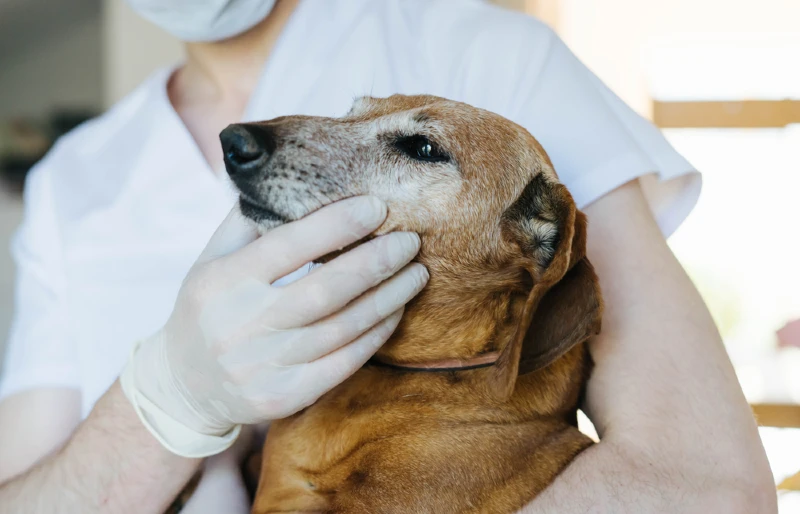
What Are the Signs of Sickness in Dogs that Have Eaten Rabbit Feces?
Here are a few signs that you need to watch out for if you’ve found your dog ingesting rabbit feces.
- Vomiting
- Increased gas
- Diarrhea
- Decrease in appetite
- Lethargy
What Can My Dog Catch From Eating Rabbit Poop?
A parasite that dogs can potentially contract from eating rabbit poop is Giardia, a single-celled parasite that not only affects dogs but can also affect humans, although the chances are pretty slim. Transmission of Giardia from rabbit poop to dogs seems highly unlikely, and many gastrointestinal parasites have a requirement for specific hosts to finish their cycle and cannot affect species outside of this except causing transient diarrhea.
If your dog has contracted Giardia, they may require veterinary treatment, and you should take certain precautions when it comes to you and your family. Speak to your doctor about ways to protect yourself against Giardia. The vet can test your dog for Giardia if they have chronic gastrointestinal signs that are not resolving, but this would not be instantly obvious after your dog ate rabbit poop.
Some dogs may display no signs of illness despite having Giardia and may only have been accidentally confirmed thanks to the routine fecal testing, while others develop chronic diarrhea. Stools are usually soft, malodorous, contain mucus, and appear fatty. Watery diarrhea or the presence of blood or vomiting are less common. Your vet may recommend treatment based on clinical signs and history alone, but a fecal test to confirm parasite presence is preferred, with another test to make sure the treatment has been successful at the end.
Why Do Dogs Eat Rabbit Poop?
There are various reasons for dogs eating rabbit poop, and we’ll list a few of them below.
Sheer Curiosity
Your dog may be just eating the rabbit poop out of sheer curiosity because dogs are curious creatures. Dogs explore the world through smell and taste, and a small pile of rabbit poop may be too tempting to ignore.
It Tastes Good
To your dog, it might!
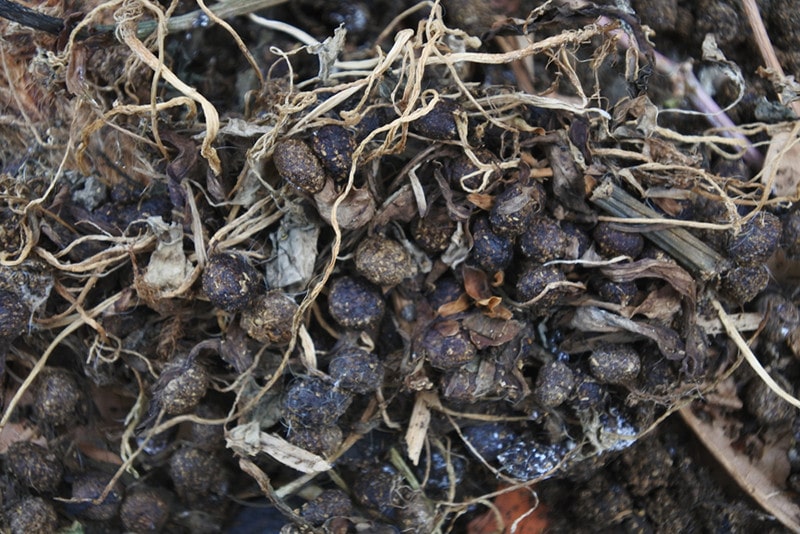
Boredom
Bored and frustrated dogs may interest themselves in plenty of less-than-desirable activities, such as destruction of toys or furniture or eating poop. Combined with curiosity, this may be more common in puppies and young dogs.
Hunger
It is possible that your dog is hungry, and the rabbit feces tastes good to them. Feeding a well-balanced diet and establishing a feeding routine can prevent your dog from getting hungry and sampling rabbit feces.
However, there are certain medical conditions that can lead to excessive hunger, such as endocrine diseases (like diabetes and Cushing’s disease), gastrointestinal parasites, and others. If your dog is unusually hungry, it’s important to get them checked out by the vet as soon as possible so these conditions can be ruled out.
Pica
While this doesn’t happen often, your canine may be suffering from Pica. Pica is a condition manifested by dogs eating non-food items or foreign objects they wouldn’t normally eat. Dogs indulge in this behavior due to many possible reasons, such as stress, anxiety, underlying medical conditions, from medications, and many more.
It’s also possible that your dog is suffering from a nutritional deficiency. If you feel that your dog has Pica, it’s best to contact your vet for an appointment.
Nutritional Deficiencies
It’s also possible that your dog is suffering from a nutritional deficiency. Rabbit feces are rich in B-complex vitamins and fiber, so if your dog is constantly trying to eat poop, you should check their diet to see what is lacking, or speak to your vet.
How Can I Keep My Dog Safe?
Now that you know why your dog might be eating rabbit feces and what to do about it, we’ll give you a few tips below for keeping your dog safe.
Stay Up to Date With Flea, Tick, Intestinal Worming and Heartworm Treatments
As we mentioned earlier, dogs cannot easily get worms directly from eating rabbit feces, but if there are rabbits and other creatures in the area, then parasites can be a risk. Staying up to date with recommended preventative treatments is the best way to be sure you are keeping your dog as safe as you can.
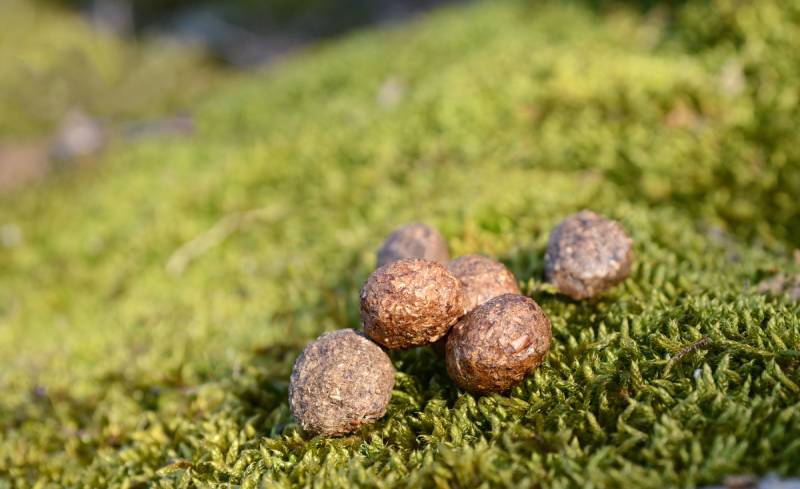
Stay Outside With Your Dog
While following your dog around when they go to the bathroom can be aggravating, it’s the best way to keep him from eating rabbit poop again. If you are with your dog, you can stop them before they can ingest the rabbit feces or anything else that could make them sick. While this can be frustrating, it can also help break the habit with your dog.
Try to Keep Rabbits Out of Your Yard
Keeping your dog away from pet rabbits is simple, but it’s hard to control when wild rabbits enter your yard. You can try removing bushes and foliage that attract rabbits and putting up fences that the rabbits can get through, but that’s about all you can do.
Final Thoughts
Dogs can get into any number of things, which means most pet parents aren’t surprised to find their furry friend’s nose buried in a pile of rabbit poop. However, that doesn’t stop us from worrying that feces could hurt our canines.
While rabbit feces is unlikely to hurt your dog, it’s best to be safe and contact your vet if they consume a large amount or develop a stomach upset that is not resolved within 24 hours. There aren’t many pathogens that dogs can pick up from eating rabbit poop, but that doesn’t mean that it’s not best to be safe rather than sorry.
Featured Image Credit: KanphotoSS, Shutterstock





